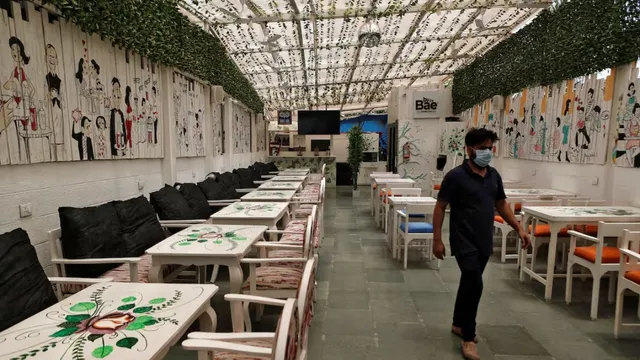- By Alex David
- Sun, 25 May 2025 11:24 PM (IST)
- Source:JND
The Food Safety and Standards Authority of India (FSSAI) is responsible for issuing licenses to restaurants, and in a harsh regulatory crack down, more than 5,000 restaurants have had their accounts suspended on food delivery systems such as Swiggy, Zomato, and Foodpanda for failing to obtain requisite licenses.
Major Food Platforms Take Action After FSSAI Directive
FSSAI instructed food aggregators to take down non-licensed practitioners from their systems due to consumer’s complaints regarding the quality of food, as this substandard culinary practice is unacceptable.
Agarwal P. Kumar, CEO of FSSAI, claims that there are 10 other food platforms which deal with the following:
Swiggy
Zomato
Foodpanda
Uber Eats
Box8
Faasos
FoodCloud
Foodmingo
JusFood
LimeTray
These platforms have removed thousands of unlicensed restaurants, ensuring they now meet FSSAI’s food safety and hygiene regulations.
Zomato Responds to Regulatory Pressure
Zomato Food Delivery CEO(Chief Executive Officer) Mohit Gupta informed that the company operators have blacklisted more than 500 restaurants in more than 40 cities. He confirmed that the blocked suppliers will permanently obtain restoration servies once they apply for the FSSAI licenses.
“We will be happy to relist them... as and when they furnish their licenses,” Gupta said.
FSSAI Strengthens Oversight of Online Food Operators
As part of its wider crackdown, FSSAI has asked food delivery companies to provide:
State-wise lists of non-compliant food vendors
Copies of business agreements with Food Business Operators (FBOs)
Proof of valid food safety licenses
Additionally, the e-commerce guidelines implemented in February for the FBOs underscore the need for heightened compliance with hygiene, safety, and licensing policies regarding the FBOs.
Final Thoughts
This action supports the greater focus on consumer food safety amid the rapid growth of online food services in India. With FSSAI tightening its control, food delivery services will be compelled to adopt more rigorous self-regulation, especially regarding license management, and better internal controls before accepting restaurants.

